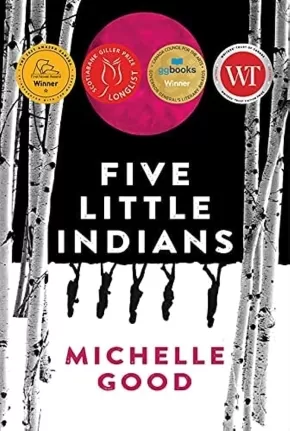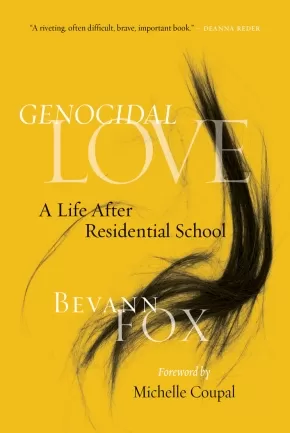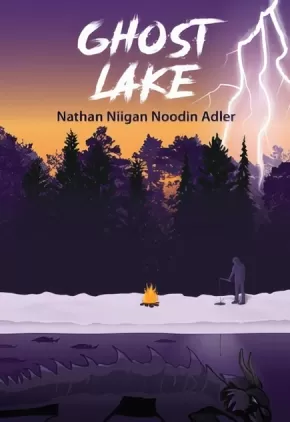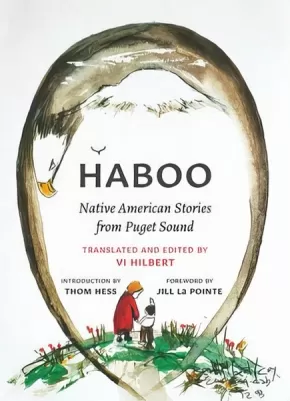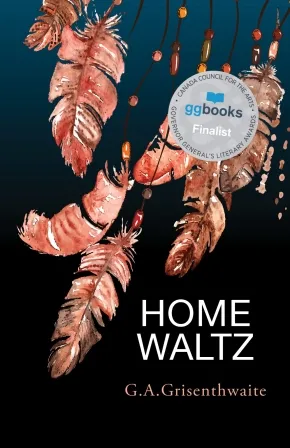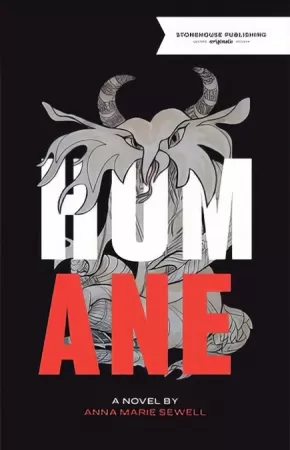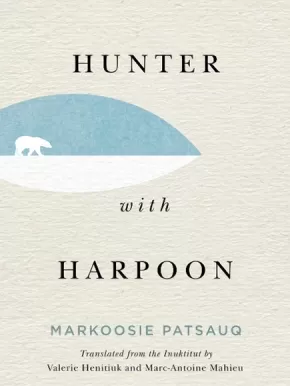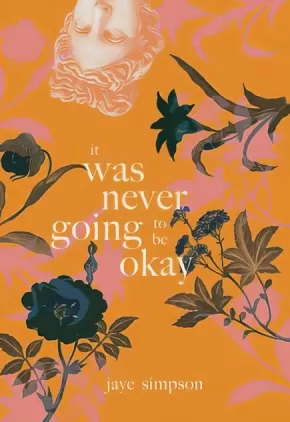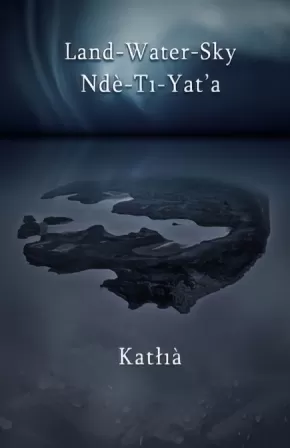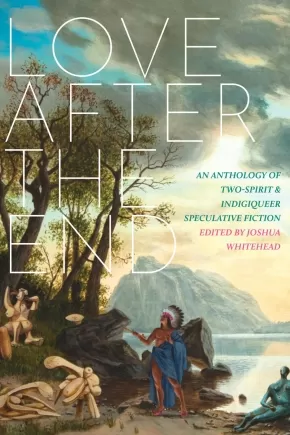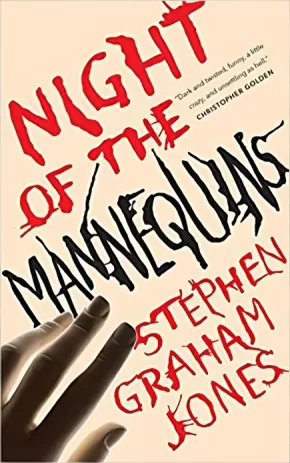Fiction
Synopsis:
From the author of the YA-crossover hit The Marrow Thieves, a propulsive, stunning and sensuous novel inspired by the traditional Métis story of the Rogarou--a werewolf-like creature that haunts the roads and woods of Métis communities. A messed-up, grown-up, Little Red Riding Hood.
Broken-hearted Joan has been searching for her husband, Victor, for almost a year--ever since he went missing on the night they had their first serious argument. One terrible, hungover morning in a Walmart parking lot in a little town near Georgian Bay, she is drawn to a revival tent where the local Métis have been flocking to hear a charismatic preacher named Eugene Wolff. By the time she staggers into the tent, the service is over. But as she is about to leave, she hears an unmistakable voice.
She turns, and there Victor is. The same face, the same eyes, the same hands. But his hair is short and he's wearing a suit and he doesn't recognize her at all. No, he insists, she's the one suffering a delusion: he's the Reverend Wolff and his only mission is to bring his people to Jesus. Except that, as Joan soon discovers, that's not all the enigmatic Wolff is doing.
With only the help of Ajean, a foul-mouthed euchre shark with a knowledge of the old ways, and her odd, Johnny-Cash-loving, 12-year-old nephew Zeus, Joan has to find a way to remind the Reverend Wolff of who he really is. If he really is Victor. Her life, and the life of everyone she loves, depends upon it.
Reviews
“Empire of Wild will not let you go. Mix werewolves unlike you’ve ever read before with the mythos-expanding struggles of American Gods and blend with Cherie Dimaline’s newest heroine, the complex and wonderful Joan of Arcand, and the result is inventive, engrossing, poetic and thrilling. Empire is Dimaline’s most accomplished book yet.” —Eden Robinson, author of Monkey Beach and the Trickster trilogy
“Cherie Dimaline has written a wondrous and deeply felt novel about hypocrisy, power imbalance and the strange, dangerous space between reality and belief. Dimaline is one of the most honest and fearless writers of her generation, and Empire of Wild is an honest and fearless book.” —Omar El Akkad, author of American War
“A magical, electric novel that merges our modern urban world with the mythology of an uncolonized landscape. Dimaline’s descriptions are vivid and sordid and so, so alive. She creates a whole world of hope and hatred in the figure of a hot man in a ’79 Impala, and then takes you into the woods where a wolf dressed in a fine suit threatens to swallow you whole in disturbingly erudite language. The wonders of Indigenous values and their struggle to survive against insidious Western ideology and culture are framed in a wild adventure that cements Dimaline’s talents as a magical realist provocatrice.” —Heather O’Neill, author of The Lonely Hearts Hotel
“Empire of Wild is doing everything I love in a contemporary novel and more. It is tough, funny, beautiful, honest and propulsive—all the while telling a story that needs to be told by a person who needs to be telling it. The book feels like now, and we need more stories from Native communities to feel that way. She knows this community and this community will know she knows it when they read her, but it will resonate with so many more. Cherie Dimaline is a voice that feels both inevitable and necessary.” —Tommy Orange, author of There There
Educator Information
This book is available in French: Rougarou
Additional Information
320 pages | 5.14" x 7.99" | Paperback
Synopsis:
Field Notes for the Self is a series of dark meditations: spiritual exercises in which the poem becomes a forensics of the soul. The poems converse with Patrick Lane, John Thompson, and Charles Wright, but their closest cousins may be Arvo Pärt’s tintinnabulations—overlapping structures in which notes or images are rung slowly and repeatedly like bells. The goal is freedom from illusion, freedom from memory, from “the same old stories” of Lundy’s violent past; and freedom, too, from the unreachable memories of the violence done to his Indigenous ancestors, which, Lundy tells us, seem to haunt his cellular biology. Rooted in exquisitely modulated observations of the natural world, the singular achievement of these poems is mind itself, suspended before interior vision like a bit of crystal twisting in the light.
Reviews
“Here is a poet of whom one can say—quietly, simply, with gratitude—that highest of praises: the real thing.” —Jane Hirshfield, author of The Beauty
“Randy Lundy has entered the place where the masters reside…” —Patrick Lane, author of Washita
Educator & Series Information
This work is part of the Oskana Poetry & Poetics series. Publishing new and established authors, Oskana Poetry & Poetics offers both contemporary poetry at its best and probing discussions of poetry’s cultural role. Oskana is the Cree word for "bones," and it is used with the blessing of Elder Noel Starblanket. The name reflects a commitment to speak to the deepest and most urgent issues of our time, including environmental crisis and Indigenous justice.
Additional Information
96 pages | 5.50" x 8.50"
Synopsis:
Taken from their families when they are very small and sent to a remote, church-run residential school, Kenny, Lucy, Clara, Howie and Maisie are barely out of childhood when they are finally released after years of detention.
Alone and without any skills, support or families, the teens find their way to the seedy and foreign world of Downtown Eastside Vancouver, where they cling together, striving to find a place of safety and belonging in a world that doesn’t want them. The paths of the five friends cross and crisscross over the decades as they struggle to overcome, or at least forget, the trauma they endured during their years at the Mission.
Fuelled by rage and furious with God, Clara finds her way into the dangerous, highly charged world of the American Indian Movement. Maisie internalizes her pain and continually places herself in dangerous situations. Famous for his daring escapes from the school, Kenny can’t stop running and moves restlessly from job to job—through fishing grounds, orchards and logging camps—trying to outrun his memories and his addiction. Lucy finds peace in motherhood and nurtures a secret compulsive disorder as she waits for Kenny to return to the life they once hoped to share together. After almost beating one of his tormentors to death, Howie serves time in prison, then tries once again to re-enter society and begin life anew.
With compassion and insight, Five Little Indians chronicles the desperate quest of these residential school survivors to come to terms with their past and, ultimately, find a way forward.
Awards
- Amazon Canada First Novel Award
- 2020 Governor General's Literary Award for English-language fiction
- 2022 Canada Reads Winner
Educator Information
Winner of the 2018 HarperCollins/UBC Price for Best New Fiction, Michelle Good's Five Little Indians is told from alternating points of view of five former residential school students as they struggle to survive in 1960s Vancouver.
Additional Information
304 pages | 6.00" x 9.00"
Synopsis:
How can we heal in the face of trauma? How can we transform intergenerational pain into a passion for community and healing?
Presenting herself as “Myrtle,” residential school survivor and Indigenous television personality Bevann Fox explores essential questions by recounting her life through fiction. She shares memories of an early childhood filled with love with her grandparents—until she is sent to residential school at the age of seven. Her horrific experiences of abuse there left her without a voice, timid and nervous, never sure, never trusting, affecting her romantic relationships and family bonds for years to come.
This is the story of Myrtle battling to recover her voice. Genocidal Love is a powerful confirmation of the long-lasting consequences of residential school violence —and a moving story of finding a path towards healing.
Awards
- 2021 Indigenous Voices Awards winner for Published Prose in English: Creative Nonfiction and Life-Writing
Reviews
“A riveting, often difficult, brave, important book. ” —Deanna Reder, Chair, Department of Indigenous Studies, Simon Fraser University
“A riveting and courageous reflection. . . . Genocidal Love is unique in its detailed account of the often re-traumatizing effects of the legal and bureaucratic barriers of compensation programs predating the Truth and Reconciliation Commission. ” —Jesse Rae Archibald-Barber, editor of kisiskâciwan and co-editor of Performing Turtle Island
“Fox tears beauty from the jaws of genocide, daring to claim love beyond settler imaginings—love that nurtures decolonial futures and makes possible a more just world. ”—Sam McKegney, author of Magic Weapons and Masculindians
Educator Information
A forward from Michelle Coupal explains more about "Genocidal Love—a story that Bevann tells about herself outside the boundaries of what constitutes fiction and non-fiction".
Additional Information
256 pages | 5.00" x 7.00"
Synopsis:
In Ojibwe cosmology there are thirteen moons...
And in the pages of Ghost Lake are thirteen stories featuring an interrelated cast of characters and their brushes with the mysterious. Issa lives in fear of having her secret discovered, Aanzheyaawin haunts the roads seeking vengeance, Zaude searches for clues to her brother’s death, Garion wrestles with his sexual inclinations, Fanon struggles against an unexpected winter storm, Kylie fights to make it back to shore, Eadie and Mushkeg share a magical night, Tyner faces brutal violence, and Tyler, Clay, and Dare must make amends to the spirits before it’s too late. On the northern Ontario reserve of Ghost Lake the precolonial past is not so distant, and nothing is ever truly lost or destroyed. Because the land remembers.
Awards
- 2021 Indigenous Voices Awards winner for Published Prose in English: Fiction
Reviews
“Adler gifts us with this collection of intense life and death stories that straddle the worlds of the everyday and the fantastic. These stories challenge the notion of default reality and Adler crafts them with a deft hand.”—Michelle Good, author of Five Little Indians
“Ghost Lake is the border to all things known—but not in the way wider society conceives them: there is no lighthouse imposing its dichotomy on the darkness. It invites recovery and connection from its characters beautifully; story, memory, and relationship build the landscape for them to walk on. The people of Ghost Lake move through experiences with a curiosity and bravery that I hope all readers have—where there are no experts to place rules on a community’s desire to remember. We need more collections like this.”—Tyler Pennock, author of Bones
“A memorable, necessary read, Nathan Adler’s remarkable collection Ghost Lake delves into the life-changing passages of love and loss, revenge and redemption, survival and discovery. His vital, authentic characters journey through a world in which the boundary between the so-called real and the illusory—the realm of mysteries, spirits, and myths—is itself revealed to be the illusion. These imaginative, expertly crafted stories are guaranteed to illuminate and stir, to challenge and entertain.” —Daniel Scott Tysdal, author of The Writing Moment: A Practical Guide to Creating Poems
Educator Information
An interconnected collection of stories set on the fictional Northern Ontario Reserve of Ghost Lake, featuring a cast of interrelated characters and their encounters with the supernatural and other phenomenon, with themes ranging from love, loss, and relationships, to the meaning of monstrosity, violence, tragedy, and justice.
Ghost Lake is the sequel to Nathan Adler's debut horror novel, Wrist.
Pyromaniacs, vigilantes, mysterious phenomena, prehistoric beasts, cryptid species, grave robbers and ghosts… the stories of Ghost Lake feature a cast of interrelated characters and their brushes with the supernatural, creatures of Ojibwe cosmology, the Spirit World, and with monsters, both human and otherwise. Nathan Niigan Noodin Adler shows us that the precolonial past is not so distant, that history informs the present, and nothing is ever truly lost or destroyed, because the land remembers.
Additional Information
320 pages | 5.50" x 8.00"
Synopsis:
The stories of the Lushootseed-speaking people of Puget Sound represent an important part of the oral tradition by which one generation hands down beliefs, values, and customs to another. Vi Hilbert grew up when many of the old social patterns survived and everyone spoke the ancestral language.
Haboo, Hilbert’s collection of thirty-three stories, features tales mostly set in a time before the world transformed. Animals, plants, trees, and even rocks had human attributes. Prominent characters like Wolf, Salmon, and Changer and tricksters like Mink, Raven, and Coyote populate humorous, earthy stories that reflect foibles of human nature, convey serious moral instruction, and comically detail the unfortunate, even disastrous consequences of breaking taboos.
Beautifully redesigned and with a new foreword by Jill La Pointe, Haboo offers a vivid and invaluable resource for linguists, anthropologists, folklorists, future generations of Lushootseed-speaking people, and others interested in Native languages and cultures.
Reviews
"The wisdom and teachings found in Haboo continue to offer a . . . resource that highlights a way of being in the world that we have strayed from, and they remain as relevant today as they have been for generations." - from the foreword by Jill La Pointe
Additional Information
232 pages | 6.50" x 9.00" | 20 b&w illustrations, 1 map | Translated and Edited by Val Hilbert, Foreword by Jill La Pointe, Introduction by Thom Hess | 2nd Edition
Synopsis:
In 1973, fifteen-year old, or "Squito" Bob, is a mixed-blood NłeᎮkepmx boy trying to find his place in a small, mostly Native town. His closest friends are three nłeᎮkepmx boys and a white kid, an obnoxious runt who thinks himself superior to his friends. Accepted as neither Native nor white, Squito often feels like the stray dog of the group and envisions a short, disastrous life for himself. HOME WALTZ follows the boys over thirty-six hours on what should be one of the best weekends of their lives. With a senior girls volleyball tournament in town, Squito's favourite band performing, and enough alcohol for ten people, the boys dream of girls, dancing and possibly romance. A story of love, heartbreak and tragedy, HOME WALTZ delves into suicide, alcohol abuse, body image insecurities, and systemic racism. A coming of age story like no other, HOME WALTZ speaks to one indigenous youth's experience of growing up in a world that doesn't want or trust him.
Reviews
"In Squito Bob, Gordon Grisenthwaite has given us a latter-day Holden Caufield, fighting hormones, toxic friendships, and the general stupidity of others in the fleeting hope of his own brief shot at transcendence. Home Waltz is a tour de force, full of compassion and insight and humour and utterly unflinching in its look at the hard truths of life on the res." —Nino Ricci, author of Lives of the Saints, and Testament
"Grisenthwaite weaves the classic coming-of-age tale into a story of deep grief and longing for place, the unfair treatment of First Nations people, but also the heart and kinship of First Nation’s communities."—Crystal Mackenzie, Freefall Magazine
Additional Information
304 pages | 5.25" x 8.25" | Paperback
Synopsis:
Who steals a dog from a shelter after receiving a dream message from their grandmother?
Hazel Lesage never expected it to be her. Then again, she didn't plan on becoming an unlicensed PI, helping the 'throwaway people.' However much has changed in Amiskwaciy, the problem of poor Indigenous women and girls being expendable hasn't. Nobody else is going to help the Augusts find out who killed their daughter Nell; so Hazel takes the case. And then she takes the dog.
What follows will force Hazel and her family to confront the question of what it means to be Human, and what it matters to be Humane.
Additional Information
274 pages | 5.00" x 7.75"
Synopsis:
A new English translation of an acclaimed 1970 novel reveals a stark, powerful story, an Inuit worldview, and the unique voice of Markoosie Patsauq.
Published fifty years ago under the title Harpoon of the Hunter, Markoosie Patsauq's novel helped establish the genre of Indigenous fiction in Canada. This new English translation unfolds the story of Kamik, a young hero who comes to manhood while on a perilous hunt for a wounded polar bear. In this astonishing tale of a people struggling for survival in a brutal environment, Patsauq describes a life in the Canadian Arctic as one that is reliant on cooperation and vigilance.
In collaboration with the author, Valerie Henitiuk and Marc-Antoine Mahieu return to the original Inuktitut text to provide English readers with a more accurate translation. With a preface by Patsauq and an afterword from the translators, this edition offers a fresh and contextualized interpretation of a cultural milestone. Whether revisiting this classic or discovering it for the first time, readers will find in Hunter with Harpoon a sophisticated coming-of-age tale illustrating a way of life not as it appeared to southerners, but as it has survived in the memory of the Inuit themselves.
Educator Information
Translated from the Inuktitut by Valerie Henitiuk and Marc-Antoine Mahieu.
Valerie Henitiuk, translation studies specialist, is provost at Concordia University of Edmonton.
Marc-Antoine Mahieu is professor of Inuktitut at the Institut national des langues et civilisations orientales, Université Sorbonne Paris Cité, and consultant for the Kativik school board in Nunavik.
This book is available in French: Chasseur au harpon
Additional Information
104 pages | 5.98" x 7.99"
Synopsis:
The incisive and vital first poetry collection from Mi'kmaw spoken-word poet and former poet laureate of Kjipuktuk (Halifax), Nova Scotia.
We remember tomorrow and a thousand years ago.
From eel weirs to the buffalo.
We remember petroglyphs and Instagram photos.
See, we remember our history,
Without statues, money, or pictures of the Queen.
In Mi'kmaw, three similarly shaped words have drastically different meanings: kesalul means "I love you"; kesa'lul means "I hurt you"; and ke'sa'lul means "I put you into the fire." In spoken-word artist and critically acclaimed author (I'm Finding My Talk) Rebecca Thomas's first poetry collection, readers will feel Thomas's deep love, pain, and frustration as she holds us all to task, along the way mourning the loss of her childhood magic, exploring the realities of growing up off reserve, and offering up a new Creation Story for Canada.
Diverse and probing, I place you into the fire is at once a meditation on navigating life and love as a second-generation Residential School survivor, a lesson in unlearning, and a rallying cry for Indigenous justice, empathy, and equality. A searing collection that embodies the vitality and ferocity of spoken-word poetry.
Additional Information
128 pages | 5.50" x 7.50"
Synopsis:
Peg is struggling for survival at her boarding school. Three über-cool “it” girls take aim at Peg and make her life utterly miserable. When her beloved Grandmother dies she just wants to disappear. Then an unexpected gift arrives; inside it, Peg finds three cast-iron Canadian soldiers. In despair, she throws them against the floor. How can they help her? They are so small, and the girls’ shadow is so big. But, miraculously, the toys come to life as Indigenous snipers from World War I, just in time to wage an epic battle against the girls. A powerful play that will appeal to audiences both young and old, Iron Peggy uses a creative and ever-surprising blend of voices and sceneries to tell this moving story. With 2018 marking the 100th-year anniversary of WWI, Iron Peggy is an excellent introduction to its history and a touching testimony that not only celebrates the First Nation participation in the war effort but also a young girl’s personal victory.
Iron Peggy, by award-winning, international Métis performer and playwright Marie Clements, was commissioned by the Vancouver International Children’s Festival and premiered at Vancouver’s Waterfront Theatre in 2019. (Adapted from Vancouver International Children’s Festival online presentation.)
Educator Information
A powerful play that will appeal to audiences both young and old. With 2018 marking the 100th-year anniversary of WW I, Iron Peggy is an excellent introduction to its history and a touching testimony that not only celebrates the First Nations participation in the war effort but also a young girl’s personal victory. By award-winning, international Métis performer and playwright Marie Clements, commissioned by the Vancouver International Children’s Festival.
Recommended for grades 9 to 12 for Acting, Drama, English Language Arts, and Social Studies.
Additional Information
112 pages | 5.50" x 8.50"
Synopsis:
it was never going to be okay is a collection of poetry and prose exploring the intimacies of understanding intergenerational trauma, Indigeneity and queerness, while addressing urban Indigenous diaspora and breaking down the limitations of sexual understanding as a trans woman. As a way to move from the linear timeline of healing and coming to terms with how trauma does not exist in subsequent happenings, it was never going to be okay tries to break down years of silence in simpson’s debut collection of poetry:
i am five
my sisters are saying boy
i do not know what the word means but—
i am bruised into knowing it: the blunt b,
the hollowness of the o, the blade of y
Awards
- 2021 Indigenous Voices Awards winner for Published Poetry in English.
Reviews
"jaye simpson’s it was never going to be okay is a symphony of unrelenting rage and undying hope that beckons to be heard, seen and held with the utmost care. In this stunning debut they speak truths to the complexities of the body, land and memory through an intimately structured and poignant cadence. This collection will leave you longing for more and, in the legacy of trans Indigenous literature, change lives." — Arielle Twist, author of Disintegrate/Dissociate
"jaye simpson marshals a vast economy of images because their subject matter is as large as an entire country, as the colonial past, as structures of oppression and indifference that undermine Indigenous and trans livability. At the level of craft, simpson makes use of the codes of tragedy, polemic, autobiography and the lyric artfully and powerfully. By the book’s end, buoyed by its final beautiful and tender section, a kind of love letter to trans Indigenous peoples, one is called on to build a new world. In this way, jaye simpson's poetry is a vital artifact of a decolonial future!" — Billy-Ray Belcourt, 2018 Griffin Poetry Prize winner for This Wound Is a World
Additional Information
112 pages | 5.50" x 8.00"
Synopsis:
A vexatious shapeshifter walks among humans. Shadowy beasts skulk at the edges of the woods. A ghostly apparition haunts a lonely stretch of highway. Spirits and legends rise and join together to protect the north.
Land-Water-Sky/Ndè-Tı-Yat’a is the debut novel from Dene author Katłįà. Set in Canada’s far north, this layered composite novel traverses space and time, from a community being stalked by a dark presence, a group of teenagers out for a dangerous joyride, to an archeological site on a mysterious island that holds a powerful secret.
Riveting, subtle, and unforgettable, Katłįà gives us a unique perspective into what the world might look like today if Indigenous legends walked amongst us, disguised as humans, and ensures that the spiritual significance and teachings behind the stories of Indigenous legends are respected and honored.
Reviews
“This book brought a lot of memory for me when Elders used to tell stories sitting around and visiting my parents and telling stories about nąhgąąÌ. The story was so descriptive the way the Elders told stories. I related to all the events of the story because its very similar to the stories I’ve heard. MahsıÌ Cho for keeping our stories alive.”— Maro Sundberg, Executive Director at Goyatiko Language Society
“In the era of pre-contact, ancient stories were deeply engrained in the landscape from which it derives from. They inspire traditional storytellers to pass onto current times, a frame to support today’s tellings and in this writing, it’s an extension too snippets of stories heard, the collisions of changing times of life in the raw, taking many forms of intrigue, an ongoing tradition, a shapeshifting.” — John B. Zoe, traditional knowledge expert from Tlicho Territory, Senior Advisor with the Tłı̨chǫ Government, Chairperson of Dedats’eetsaa: the Tłı̨chǫ Research & Training Institute
"Katlıa has created a masterpiece that brilliantly weaves intriguing characters, history, culture, love for the land, water and sky into a riveting and magnificent read." — Monique Gray Smith, author of Tilly and the Crazy Eights
Additional Information
176 pages | 6.00" x 9.00"
Synopsis:
A bold and breathtaking anthology of queer Indigenous speculative fiction, edited by the author of Jonny Appleseed.
This exciting and groundbreaking fiction collection showcases a number of new and emerging 2SQ (Two-Spirit and queer) Indigenous writers from across Turtle Island. These visionary authors show how queer Indigenous communities can bloom and thrive through utopian narratives that detail the vivacity and strength of 2SQness throughout its plight in the maw of settler colonialism's histories.
Here, readers will discover bioengineered AI rats, transplanted trees in space, the rise of a 2SQ resistance camp, a primer on how to survive Indigiqueerly, virtual reality applications, mother ships at sea, and the very bending of space-time continuums queered through NDN time. Love after the End demonstrates the imaginatively queer Two-Spirit futurisms we have all been dreaming of since 1492.
Contributors include Nathan Adler, Darcie Little Badger, Gabriel Castilloux Calderon, Adam Garnet Jones, Mari Kurisato, Kai Minosh Pyle, David Alexander Robertson, jaye simpson, and Nazbah Tom.
Reviews
"Many of the stories offer portraits of a dead Earth from which new life springs, and all are ultimately uplifting, hinting at a way forward through the darkness of the present. Drawing on deep wells of history and experience, these powerful stories are sure to impress." —Publishers Weekly
"The so-called end times feel so perilously close right now. With such a cacophony of anxiety, despair, and cynicism bearing down on us, it is sometimes easy to forget that Indigenous peoples have been here before, and we still remain to uphold our responsibilities to the world and to one another. Our stories guide us forward into an ever-uncertain future, just as they guide us back home. And as editor Joshua Whitehead affirms in the introduction, Love after the End is a book we need right now - and well beyond the now. The stories here are difficult, they're beautiful, they're hilarious and sad and frightening and hopeful. But more than all of that, they guide us back to ourselves and to our relations on a shimmering trail of song and stardust. The two-spirit visionaries in this collection remind us in so many ways that the world is a wounded relative in need of healing, and that to abandon her in this time of trial is to betray the sacred bonds of kinship that we were meant to carry with courage and compassion. I am grateful beyond words that this book is in the world, and grateful to the writers, artists, and editor for the gift of (re)imagining futures where Indigenous love, liberation, and laughter flourish far beyond the settler imaginary. —Daniel Heath Justice, author of Why Indigenous Literatures Matter
"Each of these smart, stunning, imaginative stories has not only fuelled my imagination but also filled my heart, reminding me how dramatically different it is to experience work written with absolute love. Reading Love after the End is like being handed a glass of fresh water in the middle of the desert." —Alicia Elliott, author of A Mind Spread Out on the Ground
Additional Information
192 pages | 5.80" x 9.00"
Synopsis:
Award-winning author Stephen Graham Jones returns with Night of the Mannequins, a contemporary horror story where a teen prank goes very wrong and all hell breaks loose: is there a supernatural cause, a psychopath on the loose, or both?
We thought we'd play a fun prank on her, and now most of us are dead.
One last laugh for the summer as it winds down. One last prank just to scare a friend. Bringing a mannequin into a theater is just some harmless fun, right? Until it wakes up. Until it starts killing.
Luckily, Sawyer has a plan. He’ll be a hero. He'll save everyone to the best of his ability. He'll do whatever he needs to so he can save the day. That's the thing about heroes—sometimes you have to become a monster first.
Reviews
"Suffused with questions about the nature of change and friendship, “Night of the Mannequins” is a fairy tale of impermanence showcasing Graham Jones’s signature style of smart, irreverent horror." —The New York Times
"Stephen Graham Jones’s range and his understanding of horror in fiction and film is staggering. In this novella he juggles—sometimes in very sly ways—slasher stories, coming of age horror, traditions of madness and unreliability, and Kaiju to create an amazingly speedy, voice-driven read that's tons of fun. Each new book of his gives his own take on a different facet of horror, and together they all add up to something really expansive and original." —Brian Evenson, author of Song for the Unraveling of the World
"Readers will delight more than once in the realization that they might be reading a different story from the one they thought was unfolding... trust Jones and enjoy the ride." —Shelf Awareness
Additional Information
144 pages | 5.00" x 8.00"





